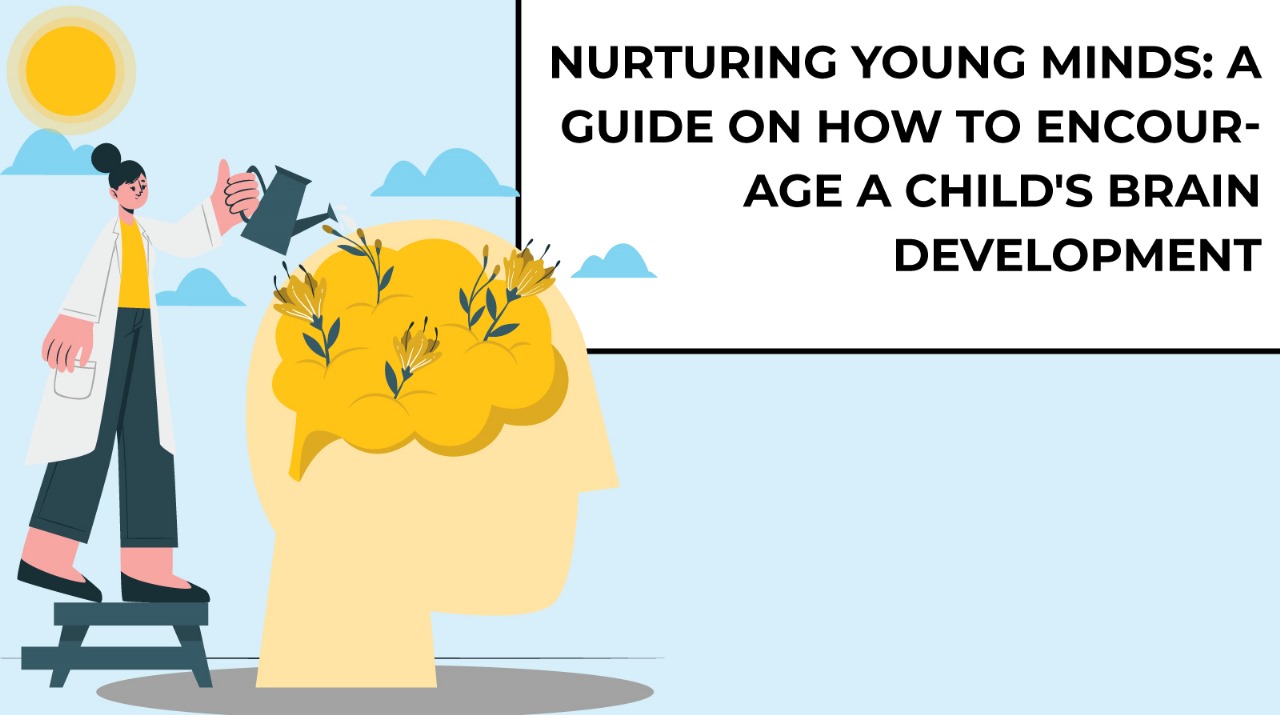The early years of a child's life are a crucial period for brain development. During this time, the brain undergoes rapid growth and forms the foundation for various cognitive, emotional, and social abilities. As parents, caregivers, and educators, it is essential to actively engage in activities that foster a child's brain development. In this article, we will explore effective strategies to encourage and support the cognitive growth of young minds.

Children learn through their senses, and a rich sensory environment plays a vital role in brain development. Surround the child with colors, shapes, textures, and a variety of stimuli. Provide age-appropriate toys, books, and interactive games that challenge and engage their minds. A stimulating environment encourages exploration and helps in the development of neural connections.
Human connection is fundamental to a child's emotional and cognitive development. Establishing secure and positive relationships with caregivers, family members, and peers creates a supportive emotional environment. Through these connections, children learn valuable social and emotional skills that contribute to their overall well-being and cognitive growth.
Play is the natural language of childhood and a powerful tool for brain development. Different types of play, such as imaginative play, constructive play, and physical play, contribute to the development of various cognitive skills. Physical activity is equally important, as it enhances blood flow to the brain, improving concentration and overall cognitive function.
Proper nutrition is essential for a child's brain development. Ensure that your child receives a balanced diet rich in essential nutrients, including omega-3 fatty acids, vitamins, and minerals. These nutrients play a crucial role in the development of the brain's structure and function. A well-nourished brain is better equipped to handle the challenges of learning and development.
Children are naturally curious, and fostering this curiosity is key to stimulating their cognitive development. Encourage exploration and ask open-ended questions that promote critical thinking. Provide opportunities for hands-on learning experiences, allowing children to discover the world around them and develop problem-solving skills.
While technology can offer educational benefits, excessive screen time can hinder a child's brain development. Set reasonable limits on screen time, and prioritize activities that involve hands-on learning and real-world interactions. Encourage activities that promote creativity and imagination rather than passive screen consumption.
Reading is a powerful tool for language development and cognitive growth. Establish a routine of reading together from an early age. Choose a variety of age-appropriate books to expose the child to different concepts, vocabulary, and perspectives. Reading together not only supports language skills but also strengthens the parent-child bond.
Encouraging a child's brain development involves a holistic approach that encompasses physical, emotional, and cognitive aspects. By creating a stimulating environment, fostering positive relationships, promoting play and physical activity, providing proper nutrition, encouraging curiosity and exploration, limiting screen time, and reading together, parents and caregivers can contribute significantly to the healthy development of a child's brain. These early investments in a child's cognitive well-being lay the foundation for a lifetime of learning and success.